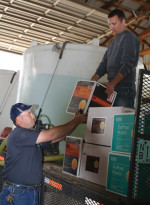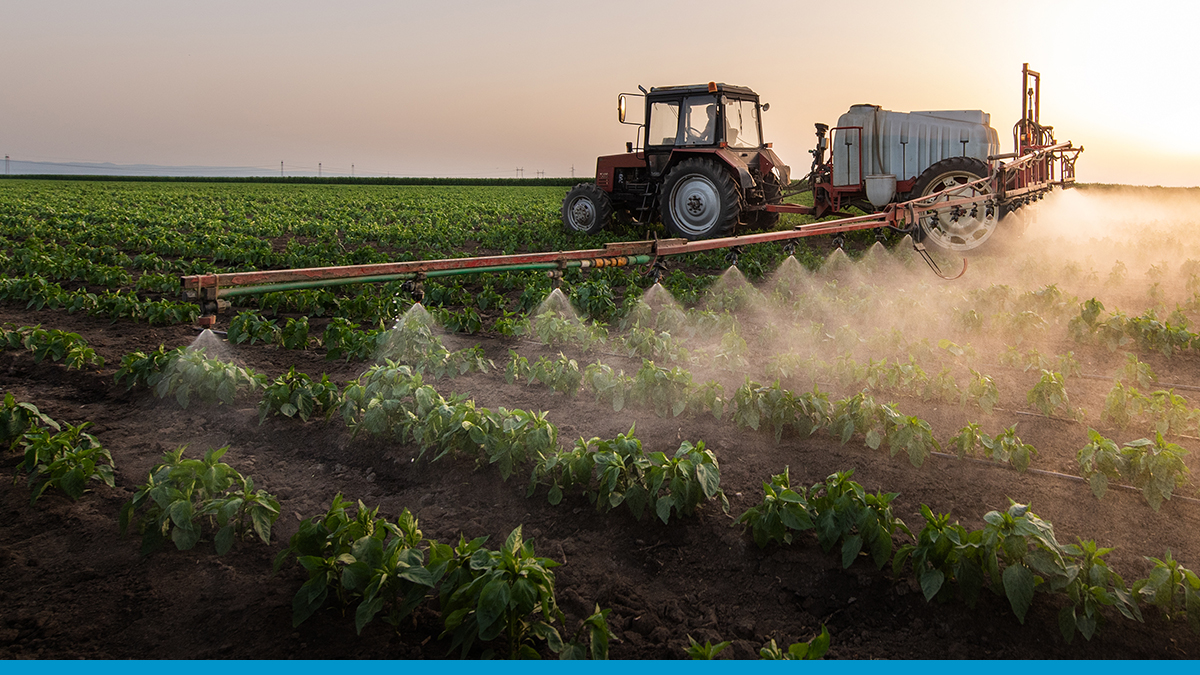Six Steps To Stewardship

At Wisconsin River Agronomy, a full-service dealer based in Central Wisconsin, it means being proactive every day in living out a company motto they all agree on: “Profitably Serving With Pride and Professionalism.”
The operation’s efforts were clearly validated this past July in the U.S. Capitol in Washington, DC, when Wisconsin River Agronomy received the 2007 National Environmental Respect Award, sponsored by DuPont Crop Protection and CropLife® magazine.
Agronomic challenges, as with many other dealers, are many and varied in this territory in Wisconsin where light, sandy soils and a great diversity of crops require prescription farming.
“Each field and each crop has a different recipe and we have to work hard to meet our customers’ yield potential and remain good stewards of the land,” says Scott Firlus, agronomy manager.
To some, instituting stewardship procedures may seem complicated and possibly costly. However, Firlus says, there are several simple and inexpensive steps a dealership can take to immediately affect safety and stewardship:
1. Offer training for new employees and existing hires regularly. According to Firlus, the dealership trains on a semi-annual basis, with an outside compliance representative who gives employees information on everything from anhydrous ammonia (NH3) safety to applicator safety to driver safety. New hires ride around with a senior employee for a day and then shadow that employee for two additional days before working with customers on their own.
“Besides our in-depth safety training, our staff receives comprehensive training at its monthly department meetings on everything from products and application to sales and customer service,” says Firlus. “We encourage everyone to take responsibility for their actions and to mentor new hires in answering questions that arise.”
Employees are encouraged to attend industry training seminars hosted by Agriliance and the University of Wisconsin Extension Office; the human resources Department keeps a database of employee training history.
2. Develop procedures for daily equipment maintenance. The dealership focuses much of its attention on equipment safety and maintenance and has a mobile mechanic who goes out into the field to handle any problems on site, where and when they happen.
The company also has instituted a “Last to Leave” policy, and each day, one person is named the last to leave. It is this person’s responsibility to make sure all products and equipment are secure before exiting the property that day.
3. Make clean-up easy. Wisconsin’s policy: the easier clean-up is, the more likely it is to actually happen, says Firlus. The proper tools for emergencies and quick clean-ups are kept readily available for all employees, making it easier for workers to be responsible and do the job correctly. The company has paved loading and unloading areas to make dry spills easy to sweep up and has a quick response team to handle any accidents that may happen in the field.
4. Review your procedures consistently. According to Firlus, this is a key component to staying up-to-date with new and existing safety methods.
“After every season, we sit down with our employees to see what we need to improve on and what fixed assets could be changed to make us a safer business,” says Firlus.
5. Communicate with local authorities. Having an open line of communication with state inspectors, and local police, fire, and rescue makes emergencies a lot easier to deal with. “We are able to be proactive and correct things they may point out before a problem arises,” says Firlus.
6. Retain good people. Hiring the right employees who respect the environment and know what needs to get done is important, and something that Wisconsin River Agronomy doesn’t take lightly, says Firlus.
“We have a great team here. One of the toughest tasks in my job,” explains Firlus, “is to keep the staff motivated and optimistic as they work long hours, day after day. We want to help our staff balance their home life and their work life so we keep happy, productive employees.”
Why invest in environmental stewardship? Wisconsin River Agronomy does it for the preservation of future generations.
“While the look of farming has changed over the years,” says Firlus, “it has evolved into a complex science with an output that touches each and every one of us on a daily basis. As an ag-related business, environmental respect is critical to the continuity of our business and ‘doing the right thing’ is important to our community as a whole.”





